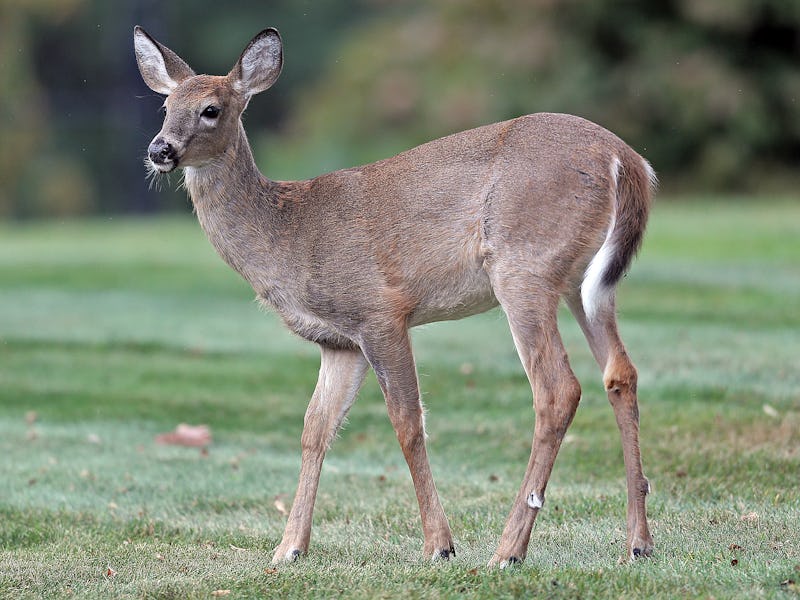Humans Gave Deer Covid-19 — And It Could Seriously Backfire
These animals could become a breeding ground for Covid-19.

Covid-19 isn’t only a human infectious disease. The pandemic, the origin of which is believed to be zoonotic, saw many other animals infected, like cats, dogs, horses, and now even deer.
According to a study published Monday in Nature Communications, humans transmitted Covid-19 to white-tailed deer hundreds of times in late 2021 and early 2022. The study, which was spearheaded by the U.S. Department of Agriculture’s Animal and Plant Health Inspection Service (APHIS), collected over 8,000 respiratory samples from free-ranging white-tailed deer across 26 states and Washington, DC. The researchers identified over 280 viruses, a great portion of which from 109 independent spillover events from humans. Some of these infections led to 39 cases of deer-to-deer transmission and potential spillover back to humans.
While deer don’t pose a great Covid-19 threat to us yet, there’s the worry these animals could become a breeding ground for Covid-19, allowing the virus’ spike protein to evolve and mutate. The study found that variants that are not currently circulating in humans, such as the Alpha, Beta, and Delta strains, were still being swapped back and forth amongst deer. The Omicron variant was also found among the viral mix.
From deer, the virus may even jump to other animals, as has been proposed at the outset of the pandemic. Moving on to a new host would catalyze even more viral mutations and adaptions that could make Covid-19 nastier and more intractable to treat.
In this scenario, there’s the likelihood a newly evolved variant could get transmitted to us. A separate 2022 study published in Nature Microbiology found evidence of a "highly divergent lineage of SARS-CoV-2" that spread from deer to humans. The new study also found several cases in North Carolina and Massachusetts where humans were infected with these newly mutated versions of Covid-19 in deer.
“Deer regularly interact with humans and are commonly found in human environments — near our homes, pets, wastewater, and trash,” Xiu-Feng Wan, the lead researcher, and professor of veterinary pathobiology at the University of Missouri, said in a press release. “The potential for SARS-CoV-2, or any zoonotic disease, to persist and evolve in wildlife populations can pose unique public health risks.”
This article was originally published on